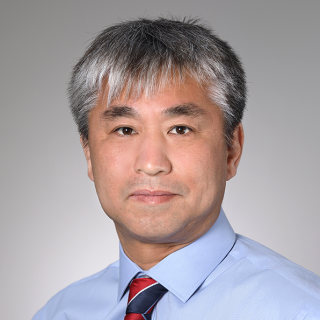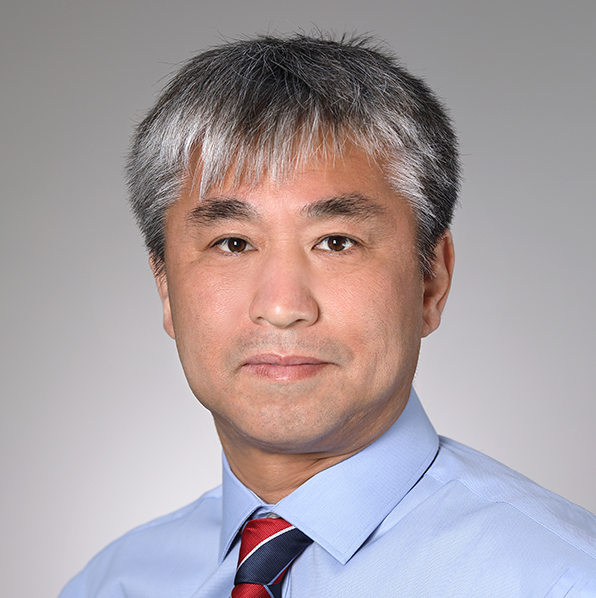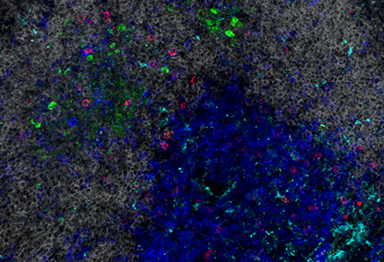
Masashi Watanabe, Ph.D.
- Center for Cancer Research
- National Cancer Institute
- Building 37, Room 1142
- Bethesda, MD 20892
- 240-858-3364
- 240-541-4466
- watanabem@mail.nih.gov
RESEARCH SUMMARY
Dr. Watanabe is an immunologist and staff scientist interested in understanding how the immune system interacts with brain tumors and their microenvironment. His research goal is to develop novel immunotherapeutic strategies to treat brain cancer.
Areas of Expertise
Research
As a member of the Translational Immunology Research Program at the Neuro-Oncology Branch (NOB), Dr. Watanabe is interested in understanding how immune cells recognize and interact with brain tumor cells—as well as why immune checkpoint inhibitor (ICI) immunotherapy does not efficiently enhance the immune response against brain cancer. He utilizes multidisciplinary approaches, including high-dimensional flow cytometry, single cell transcriptomics, spatial transcriptomics, and microscopy. His ultimate goal is to develop novel immunotherapeutic approaches to treat high-risk brain tumors, including glioblastoma multiforme (GBM).
In order to develop novel immunotherapy treatments against brain tumor, it is critically important to understand how the immune system and brain tumor interact with one another. Dr. Watanabe utilizes preclinical GBM animal models to understand this fundamental question. His specific research interests include:
1. Initial T cell recognition of brain tumor antigens
2. Antigen-presenting cells (APCs) responsible for T cell activation or exhaustion in response to tumor antigens
3. Migration of activated T cells to the brain tumor microenvironment
4. Control of the activated T cell response by brain tumors and/or the tumor microenvironment
Because current ICI immunotherapies have limited benefit for GBM patients, improving patient selection for clinical trials and ICI treatment is important. Dr. Watanabe is involved in clinical trials at the Neuro-Oncology Branch (NOB), and is developing methodology for profiling patient blood immune cells—which will help predict who will respond to ICI immunotherapy. This clinical research complements his preclinical animal studies, and will help bring new immunotherapies from bench to bedside.
Publications
Antigen-presenting T cells provide critical B7 co-stimulation for thymic iNKT cell development via CD28-dependent trogocytosis
B7-CD28 co-stimulation modulates central tolerance via thymic clonal deletion and Treg generation through distinct mechanisms
A Thpok-Directed Transcriptional Circuitry Promotes Bcl6 and Maf Expression to Orchestrate T Follicular Helper Differentiation
Co-stimulatory function in primary germinal center responses: CD40 and B7 are required on distinct antigen-presenting cells
Downmodulation of tumor suppressor p53 by T cell receptor signaling is critical for antigen-specific CD4(+) T cell responses
Biography

Masashi Watanabe, Ph.D.
Dr. Watanabe received his Ph.D. in immunology from the Tokyo University of Science, where he studied T cell co-stimulation and co-inhibition. He joined the NCI Center for Cancer Research's Experimental Immunology Branch in 2009. There, he continued conducting basic research in T cell biology, including the role of the tumor suppressor gene p53 in the T cell response. He also investigated the role of T cell co-stimulation in self-reactive T cell development and antibody production post-vaccination. He joined the Translational Immunology Program at the Neuro-Oncology Branch (NOB) in 2022.
News
Mobilizing the Immune System to Fight Brain and Spine Tumors
October 24, 2022
As a member of the Translational Immunology Research Program, Staff Scientist Dr. Masashi Watanabe investigates approaches to tailor immunotherapies to treat glioblastomas. Read more >
August 4, 2022
Summer interns investigated methods to improve immunotherapy, tailor survivorship programs, and target cancer cells using antibiotics. Read more >


